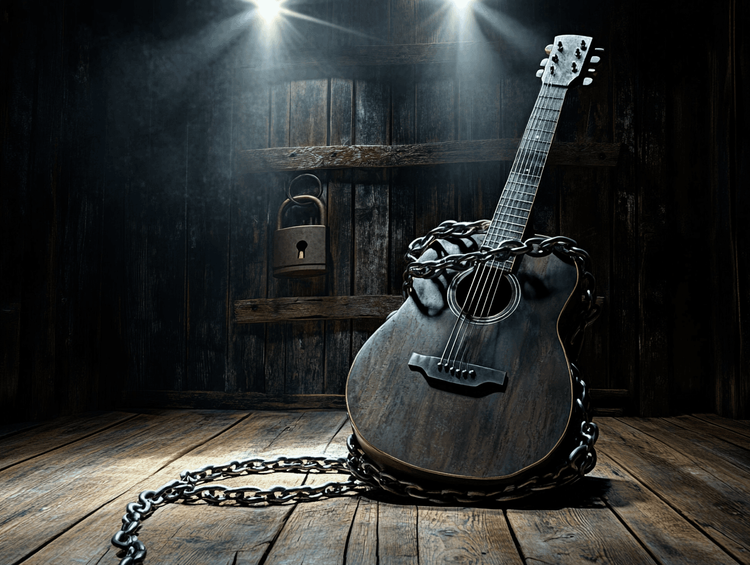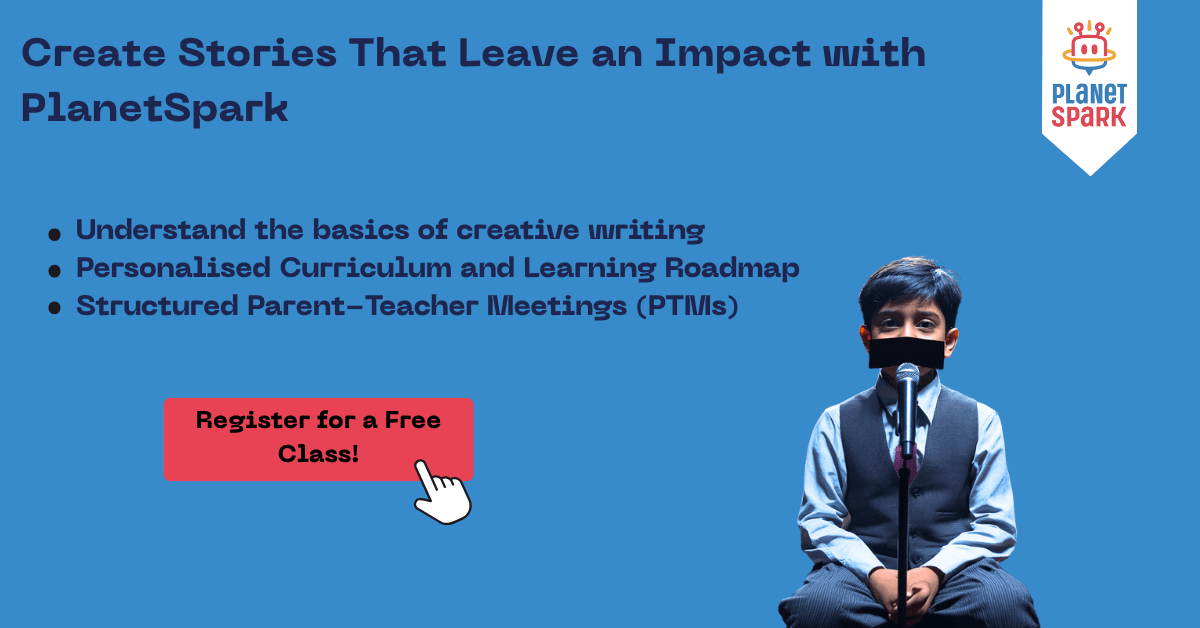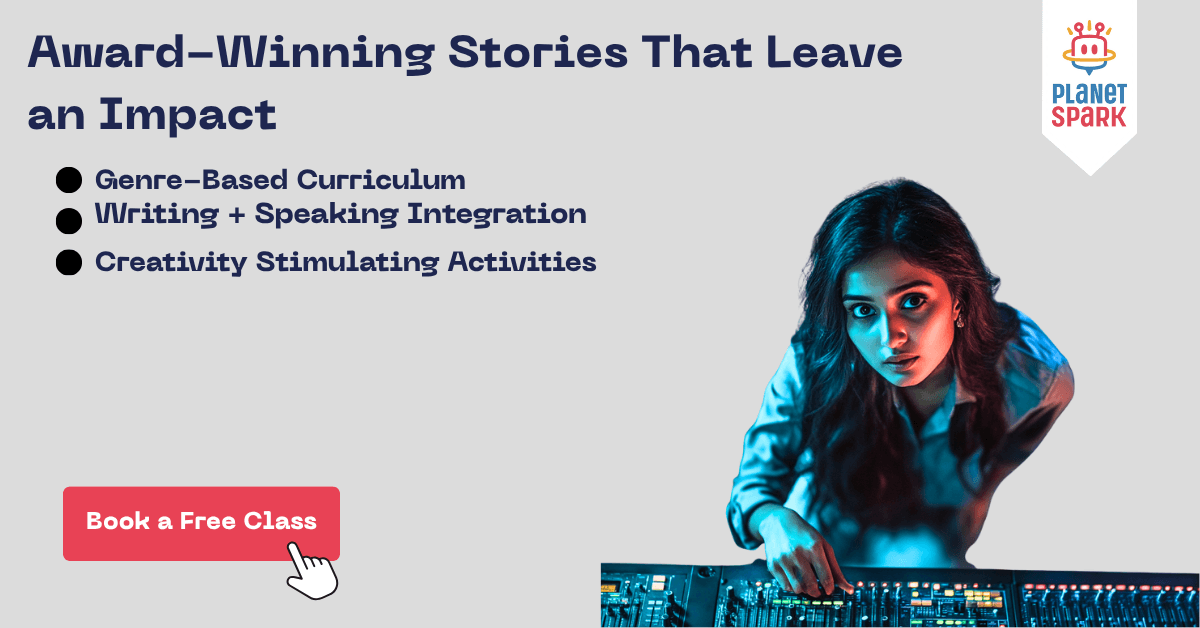Censorship in Music: Effect on Expressions and Artists

Music is a powerful art form that allows artists to express emotions, provoke thought, and inspire change, but this creative freedom is often challenged by censorship shaped by political, religious, and cultural forces. From Mozart’s edited compositions to today’s banned protest songs, music censorship continues to evolve. While exploring its impact on artistic expression, it’s also crucial to foster creativity in young minds. PlanetSpark, a leading platform in communication and writing education, helps children express themselves confidently through personalised courses and innovative tech tools, building the next generation of responsible and empowered communicators.
What Is Music Censorship?
Music censorship refers to the suppression, editing, or restriction of music based on its content. This can apply to lyrics, themes, language, visuals, or even the persona of the artist. While the primary motivations behind censorship often stem from societal protection, the lines between protection and suppression are frequently blurred. Authorities, media conglomerates, and social watchdogs often deem certain musical elements as inappropriate, offensive, or threatening to cultural or national sentiments.
Common Reasons for Music Censorship
- Explicit language: Profanity or offensive terms that are considered unsuitable for public broadcast or youth audiences.
- Political dissent: Music that challenges government policies, criticizes political figures, or advocates rebellion.
- Religious sensitivity: Songs that portray or interpret religious themes in ways that could be seen as blasphemous or disrespectful.
- Cultural taboos or nationalism: Content that challenges deep-seated cultural beliefs or national unity.
Historical Background
- Mozart and Artistic Interference: During the 18th century, composers like Mozart were subject to royal and aristocratic approval, often adjusting their music to meet the tastes and preferences of patrons.
- Jazz and Rock ‘n’ Roll Era: In the mid-20th century, jazz and rock were frequently censored for encouraging racial integration and teenage rebellion. Lyrics, dances, and even fashion associated with these genres caused alarm among conservative circles.
- Hip-Hop and Rap Music: From N.W.A.’s political lyrics to Eminem’s controversial verses, hip-hop has long been under scrutiny. While it gives voice to marginalized communities, its raw expression is often censored.
- Modern-Day Examples: Artists like Beyoncé, Billie Eilish, and Kendrick Lamar have faced bans, radio edits, and social media backlash due to bold artistic choices.

Censorship and Creativity: A Tug-of-War
Restricting Artistic Freedom
Censorship places significant limitations on the artistic process. When musicians are forced to change their lyrics, visuals, or themes to meet regulatory standards or appease audiences, it can curtail innovation and originality. The fear of backlash often causes self-censorship, where artists voluntarily dilute their content to avoid controversy.
Compromising Authenticity
Music thrives on authenticity. When artists are compelled to produce 'clean versions' or avoid certain themes, the soul of their message may be lost. This disconnect can affect both the artist's creative satisfaction and the listener's emotional connection.
Creating Tension and Rebellion
History shows that censorship often provokes defiance. Many musicians turn censorship into fuel for creativity, responding with more provocative content or alternative forms of protest art. However, this tension also risks deepening cultural divides.
Emotional Toll on Artists
Being repeatedly censored or misunderstood can be psychologically exhausting. Artists invest emotionally in their work, and forced edits or bans can lead to frustration, anxiety, and a diminished sense of purpose.
Inspiration from Resistance
Paradoxically, many iconic songs were born out of resistance to censorship. Protest music, underground movements, and independent labels have thrived on the back of suppressed voices fighting for artistic freedom.
The Cultural Side of Censorship
Maintaining Social Harmony
Supporters of censorship argue that it prevents societal unrest. In diverse societies with various religious and cultural beliefs, music that offends or incites tension can spark conflict. Censorship in such cases acts as a preventive measure.
Risk of Cultural Stagnation
Yet, over-regulation can lead to cultural uniformity. When artists avoid experimentation, society misses out on diverse perspectives and new ideas. Open discourse is essential for cultural evolution.
The Irony of Censorship
There is a paradox in censorship: banning or restricting music often generates more interest. Censored songs tend to go viral, gain cult status, or become symbols of resistance. In trying to suppress expression, censorship can unintentionally amplify it.
Global Differences in Censorship
What is censored in one country may be celebrated in another. For example, certain genres or lyrics may be banned in conservative countries but embraced in more liberal societies. This global inconsistency further complicates the issue.

Music Censorship in the Digital Age
Role of Streaming Platforms
The rise of platforms like Spotify, YouTube, and Apple Music has provided artists with more freedom. However, these platforms have community guidelines and policies that enforce censorship, especially for monetised or promoted content. Songs can be removed or restricted based on keyword detection, reports, or regional regulations.
Social Media and Viral Backlash
Social media is a double-edged sword. While it gives artists a platform to reach global audiences, it also subjects them to immediate backlash. Controversial music can become a target for cancel culture, affecting an artist’s career and mental health.
Algorithmic Suppression
Digital platforms use algorithms to determine content visibility. Music with controversial tags or flagged lyrics may not be recommended or may appear lower in search results, effectively suppressing its reach without an explicit ban.
Censorship in Global Music Markets
International artists must often adapt their content to meet the censorship standards of different countries. This may involve editing videos, changing lyrics, or releasing region-specific versions.
PlanetSpark: Promoting Responsible and Free Expression in Children
While adult artists grapple with the complexities of censorship, it’s vital to teach children how to express themselves responsibly, creatively, and freely. PlanetSpark, an innovative online education platform, empowers children to grow into confident communicators by offering a comprehensive communication curriculum enriched with writing, storytelling, and public speaking modules.
1:1 Personal Trainers for Every Child
- Each student is paired with a certified communication expert.
- Trainers personalise lessons based on learning style, pace, and personality.
- Sessions focus on fluency, storytelling, grammar, public speaking, and creative writing.
Personalised Curriculum and Learning Roadmap
- Detailed assessments identify gaps in vocabulary, fluency, confidence, and grammar.
- A step-by-step curriculum takes students from sentence formation to speech mastery.
- Plans are updated regularly based on performance and feedback.
SparkX – AI-Enabled Video Analysis Tool
- Children upload recorded speeches or stories.
- AI evaluates body language, sentence structure, modulation, and delivery.
- Parents receive a visual report with suggestions for improvement.
AI-Led Practice Sessions
- Simulated practice with virtual AI coaches.
- Instant feedback on grammar, fluency, pace, and structure.
- Builds consistency and reduces dependence on human feedback.
Spark Diary – Building Writing Habits
- A digital journal where students reflect, create, and write daily.
- Trainer-shared prompts inspire creativity.
- Builds structured writing, clarity of thought, and expressive ability.
Gamified Learning Modules
- Games like Grammar Guru and Spell Knockout make revision fun.
- Challenges and rewards keep students engaged.
- Reinforces learning in vocabulary, spelling, and grammar.
Regular Parent-Teacher Meetings (PTMs)
- Transparent updates on student growth.
- Joint discussions on goals and improvement strategies.
Comprehensive Progress Reports
- Reports assess content, grammar, voice modulation, structure, and delivery.
- Trainer notes help parents understand their child’s unique strengths and gaps.
Exclusive Learning Clubs and Communities
- Debate Club: Builds argumentation and confidence.
- Story Writing Club: Encourages plot development and originality.
- Podcasting & Poetry Circles: Hone verbal and literary skills.
- Writers Guild: Peer-reviewed writing activities.
Sparkline – A Safe Platform for Sharing Content
- Kids share content in a secure and moderated space.
- Encourages peer learning and digital confidence.
Contests, Showcases, and Recognition
- Speech competitions, storytelling contests, open mics, and podcast shows.
- Certificates, badges, and social media recognition motivate learners.
SparkBee: Fun Grammar and Vocabulary Challenges
- Daily challenges reinforce language fundamentals.
- Ideal for revision and independent practice.
SparkShop: Curated eBooks for Young Learners
- Fun, budget-friendly eBooks covering grammar, reading, and writing.
- Supports home learning with interactive exercises.
Conclusion: The Balancing Act
Music censorship continues to be a deeply complex and often controversial issue. While it aims to protect society from potentially harmful or offensive content, it also threatens the foundation of creative expression and cultural evolution. The challenge lies in balancing societal sensitivities with the need for authentic artistic representation.
Educational platforms like PlanetSpark are leading the way in raising a generation that understands this balance. By nurturing communication skills, promoting responsible expression, and offering children tools to articulate their thoughts effectively, PlanetSpark is not only safeguarding freedom of expression but also shaping thoughtful, empathetic future creators.
FAQs on Music Censorship and Creativity
1. What are the effects of music censorship?
Music censorship can suppress artistic expression while unintentionally boosting interest in the banned content. It can affect an artist's reputation and audience perception.
2. How does censorship impact creative expression?
Censorship limits an artist’s ability to explore controversial, emotional, or personal topics, often diluting the core message of their work.
3. What are the common reasons for censoring music?
Music is censored due to profanity, hate speech, graphic content, political messages, religious concerns, or threats to national security.
4. How does music censorship affect society?
It can help maintain peace in diverse societies but may also stifle innovation, creativity, and open dialogue, limiting societal growth.
5. Are there any benefits to music censorship?
In specific contexts, censorship prevents hate speech and protects vulnerable audiences, especially children, from exposure to inappropriate content.
6. Can censorship boost a song’s popularity?
Yes, banning or editing music can spark public curiosity, often leading to increased interest, media attention, and online views.
7. How does PlanetSpark promote free expression?
PlanetSpark empowers children through communication training, writing tools, digital platforms, and creative clubs, enabling them to express ideas confidently and responsibly.
Personalized Communication Report
Record a video to get a AI generated personalized communication report for your child

Hi There, want to try these
tips for your child with
LIVE with our expert coach?
Let's check your child's
English fluency
